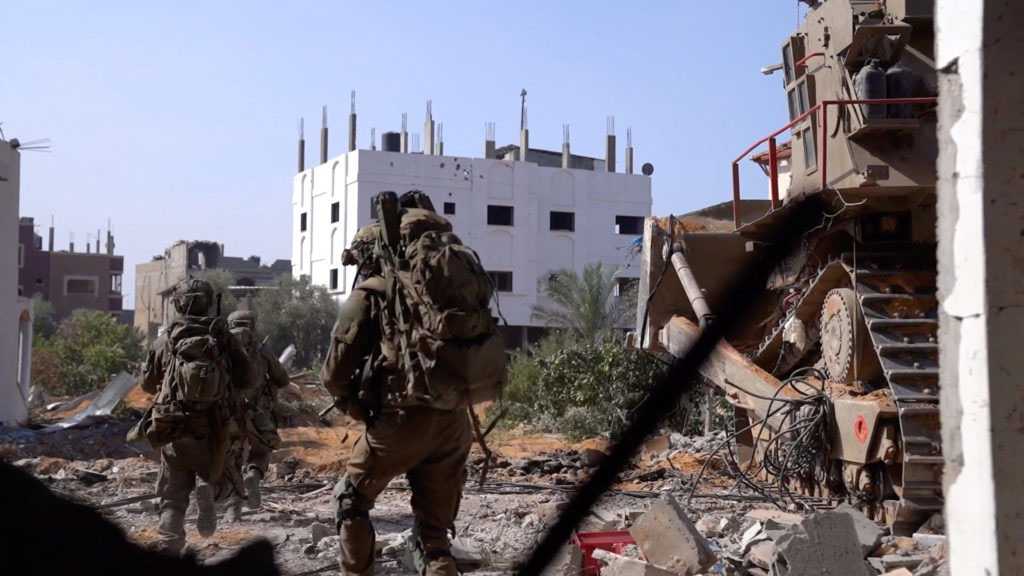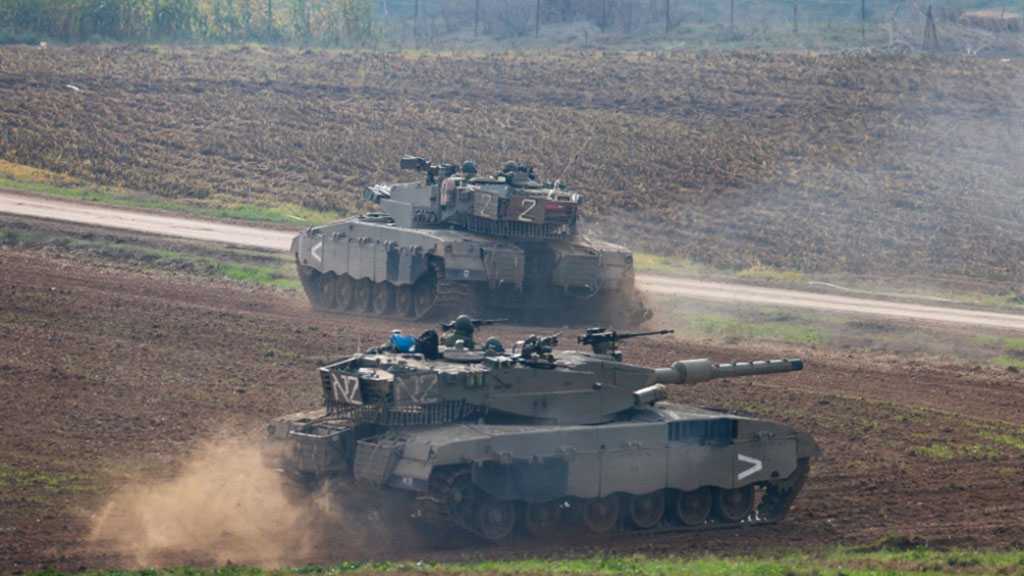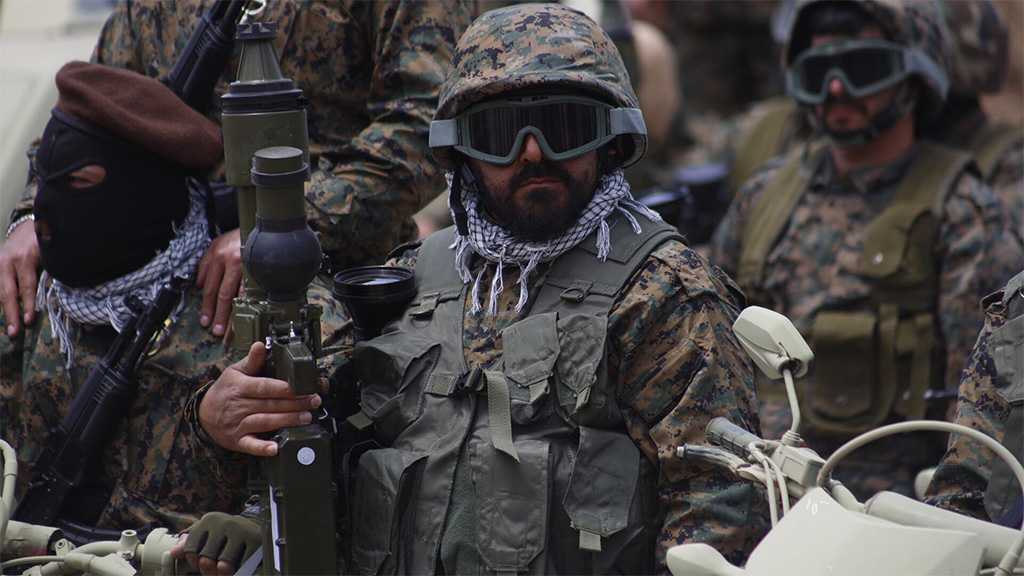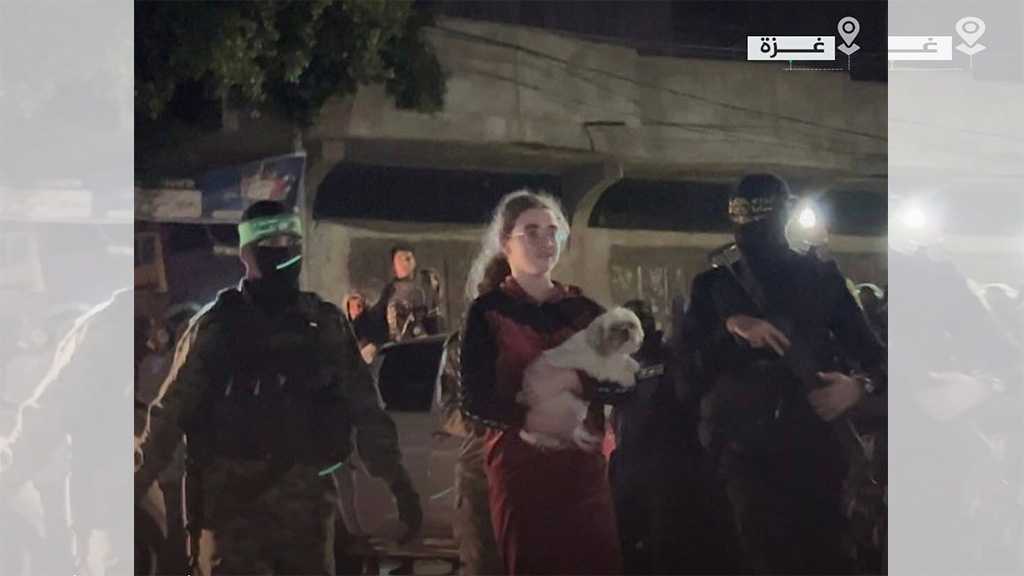
What does General Aoun say after a decade of collaboration with Hizbullah?
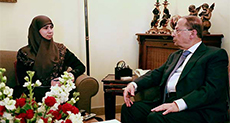
Fatima Salemeh
The ten years and the extraordinary circumstances that Lebanon experienced, have not changed the durability of understanding signed between Hizbullah and the Free Patriotic Movement. The Mar Mikhael Church was the sight of years of extraordinary meetings during which the two parties shared weal and woe.
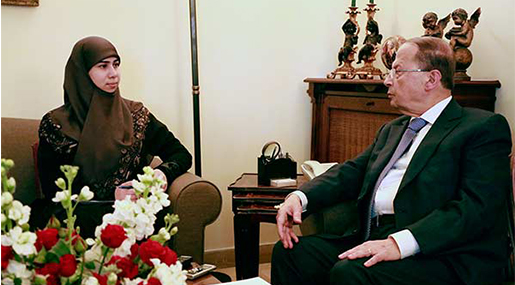
Many tried to drive a wedge between "companions on the same path " and protectors of the resistance, but failed. Haret Hreik did not break its promises, nor did Rabieh change its stance. Sayyed Nasrallah remained honest to his promise and the General steadfast to his faith on the righteousness of the strategic understanding.
The bilateral relationship has enjoyed ten good years and has not been unsettled by hunters in murky waters. Many have tried to question it, but it remained a "thorn" in envious eyes and those who support the policy of "moving the gun from shoulder to shoulder". The relationship between the two parties is larger than all those who lurk to undermine it, as the president of the "Change and Reform" party Gen. Michel Aoun confirmed in an interview with the "al-Ahed" news website. According to his calculations, trust is firm between both sides. There is no doubt when referring to an exceptional commander like his eminence Sayed Nasrallah. The General cannot even imagine this thought at all. The two are in one company. It is the company of sacrifice.
Here is the text of the interview:
Q. How do you see Lebanon after ten years of understanding between you and Hizbullah?
After ten year, we can only see Lebanon through a stage it underwent. The period was not easy at all. It was full of difficulties. In 2006, the July war broke out and the end result was definitely victory. In the analytical reading at the outbreak of the war, I insist on asking the "Israelis" about their purpose. "Israel" left Lebanon in 2000 and its objective after six years can not be to return to it, and I've come to the following conclusion: "Israel's" intention was not the occupation of the land, otherwise it would've stayed there. Its purpose is the creation of internal problems among the Lebanese to hit the Lebanese society from the inside. It is here that we issued our quick position and warned the Lebanese people of the dangers of any disorder from within.
And I launched the famous call which is "years of war with the outside and not hours of war at home". The Lebanese people were warned, and the following day we launched another appeal with the same content in the bloc's name. Indeed a wave of awareness for all occurred and they stayed away from the problems and our concern became how to help people overcome the exceptional circumstances, this was in the period of war.
In another earlier stage, the very dangerous wave of blasphemy began in Iraq in late 2005. Back then Abu Musab al-Zarqawi led this movement against the Shiites. Blasphemy means the knife, and we are a society that reacts and interacts with the Middle East. The negativity of this issue creates reactions.
We always had to try, even when things escalated in Lebanon, not to allow a fire to break out. Indeed after passing this stage, along with an end to the war in Syria that appears to be on the horizon today, I think we have succeeded despite the economic situation that became a crisis especially during the last two years. We were able to relatively preserve Lebanon, despite some losses that came through the car bombs. Thank God the war is over, and we are still treating its remnants. It is downright true, that the tough periods and experiences as well as the one hundred percent unwavering support for the resistance, created a strong and great bond between the Shiites and Christians.
Q. Why didn't any other party join this alliance especially that you opened the door for everyone?
Unfortunately, when we put the understanding on the table on February 6, we called on everyone to read it, see it, and add amendments if necessary. We sought a Lebanese agreement among all parties. But unfortunately the other parties rejected it at the time. The resentment to the understanding prompted some critics to call it a Maronite-Shia agreement against the Sunnis in some newspapers.
They immediately deemed the purpose of the agreement as hostile, but it was the complete opposite. There were several Lebanese issues that we could have agreed upon.
Indeed, most of the terms of this understanding were raised at the dialogue table and we agreed on them. There remained some issues that have not been implemented, such as the fourth article, which constitutes building a state and heading toward citizenship. It does not matter how the others thinks, what is important is how the other reacts with our thinking, but unfortunately they did not respond.
Q. How important is this year following the tenth anniversary and under exceptional challenges Lebanon is facing? In other words, can we say that a better manifestation of the understanding crystallized this year and we will see it bear fruit soon?
Sure, this relationship is stronger than doubt, because it has undergone very tough tests. I was given a choice between the presidency and disengagement with Hizbullah. Back then I said "national unity is more important than the presidency", this is no secret anymore. This matter to me is settled. There are national issues, which transcend everything, like national unity and homeland security as in 2006. These things are national foundations and no toying with them. Homeland security and the unity of the Lebanese people.
No one can watch the south being bombarded while he is in a safe place. This nation is one body. If the north was hit the south must ache, and if the south was hit the north and other regions must hurt. Its either we are citizens in solidarity or residents and not citizens.
Q. What are the main benefits of this understanding?
Security is one of the most important fruits of this understanding. The nation needs security, independence and freedom of decision. The latter is not available in others. Some feel committed to others but we are freed from the pressure imposed by "Israel" and the US, which were against us. We remained steadfast on our independence and standing for the benefit of our country.
Q. To what extent has the understanding devoted a model for dialogue referred to as the best bilateral relationship between two parties in Lebanese politics? Your understanding with the "Lebanese Forces" comes in this context?
With time, we started building confidence between us and the "Lebanese Forces". Statistics recently conducted revealed that 86% of the Christians welcomed this understanding. The statistics also expressed the likelihood that the President of the Republic would be selected. That is to say that this model is desirable among all the Lebanese people who are eager for understanding, except, of course, those who are trying to control the other side if they had some power. I think these parties were unsuccessful in their attempts to marginalize the other group.
Q. Some criticized your description of your relationship with his eminence Sayyed Nasrallah when you were quoted as saying, "Sayyed Nasrallah and I are one, there is complementarity existence between us". Critics consider that this strips you of your popularity. What is your response to that?
As citizens, yes, Sayyed Nasrallah and I are one. In difficult days we sometimes act in the same way, without even talking to each other. We believe in the same content regarding the meanings of the people's sovereignty and nation, freedom of opinion and stance. Where is the shame in saying "Sayyed Nasrallah and I are one"?
Q. What would you like to say to the Secretary-General of Hizbullah, Sayyed Nasrallah on this anniversary?
It was a blessed hour when we met, and you have provided very positive things to the Lebanese. The most important thing is their security and lives in this difficult stage. We appreciate the sacrifices of the resistance fighters who fought whether on Lebanese soils or on the border, and stopped terrorism. God willing we will see peace in neighboring countries and nations.
Q. Describe Sayyed Nasrallah for us.
There are a lot of qualities that characterize Sayyed, it can be summed up with the following words; "the extraordinary leader".
Q. What is your reaction when you hear phrases like Hizbullah would abandon General Aoun and that the relationship between the two parties is tense?
I never put much stock in this. This talk does not create doubts for me. There is a very great confidence between the two parties. God forbid that happens, I would never imagine it with Sayyed Hassan. The agreement was not build on interest but on common sacrifices. When we stand alongside each other during the war as the aircraft continued their bombings, what is the interest? There is a public interest larger than both. It is the interest of the nation and people. From here we cannot imagine a weak relationship. We do not disagree on material things. We are not a trading company but a company of sacrifices.
Q. General, what do you want to tell the supporters of the resistance and Free Patriotic Movement on this anniversary?
Both parties have gone through hardship. The difficult circumstances made us join hands and founded a steadfast national unity. Without solidarity and cooperation and bipartisan harmony with one goal, we would have faced difficulties and some forces would have toyed with public opinion. But no one can change our convictions.
Q. Any words you want to send to the Lebanese in general and to the various political parties on this anniversary?
We wish for the Lebanese people to think of the interests of the nation, part from political conflicts, and think about the interests of the homeland. We cannot say we have the interest of Lebanon at heart and elect the corrupt. We cannot seek something beyond the interest of Lebanon and elect defeatists for the interest of Lebanon, and this is the weakest of faiths. We must get along with ourselves to build a home because if poverty engulfed Lebanon it will engulf everyone and is not limited to a specific sect. When peace prevails in the country, it prevails on everyone.
The proof of this is the bad example we are seeing in Syria, which did not spare any religious sect. This barbaric threat has killed everyone. A person cannot but unite with his nation for unity, peace, respect, freedom of belief, and the right to differ, which generates progress. If we were all clones, we would not have the diversity of modern life and our way of life would've been similar to the early ages.
And I urge the political parties to allow our model of understanding with Hizbullah to circulate. It is said today that we converse but we "fight". Dialogue has its origins: It starts by acknowledging that there is a problem, recognizing that the problem needs a solution, and providing a will for the solution.
If these three things did not exist then the formal dialogue would not be named dialogue, and we will not reach a solution.
Some come to the dialogue with a case they want to win, this is not permissible. From here, we have to gather ideas to reach a solution. Peace for all, and it does not matter who participated in spreading it. The solution is for everyone and it will not matter who gave more and who took more. The whole of the nation will take. So far all the dialogue sessions I've participated in included confrontations more than dialogue. There are positions taken before the dialogue gets underway, and this is unacceptable. Every one of us should have the flexibility to listen to the other, and then the solution becomes convenient for all.
Last Word
Many Happy Returns to all. Thankfully and God willing, this understanding will be an example for future generations to be proud of throughout history, and learn how the two parties united to save the nation from its problems, and continue the road towards the good.
Source: al-Ahed, Translated and Edited by website team
